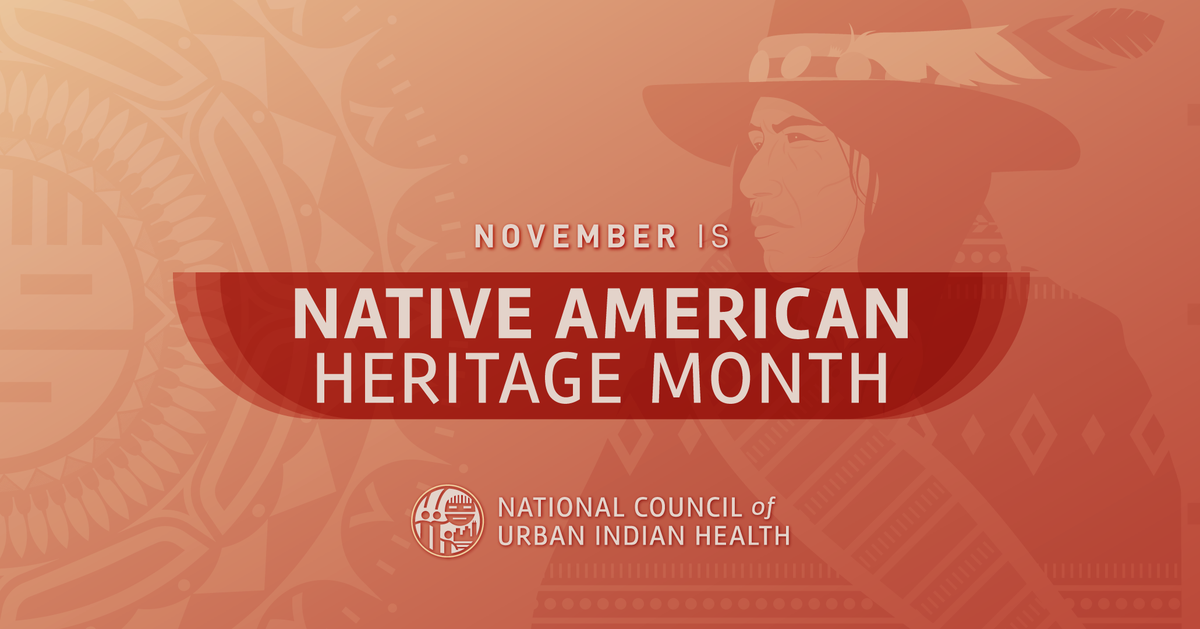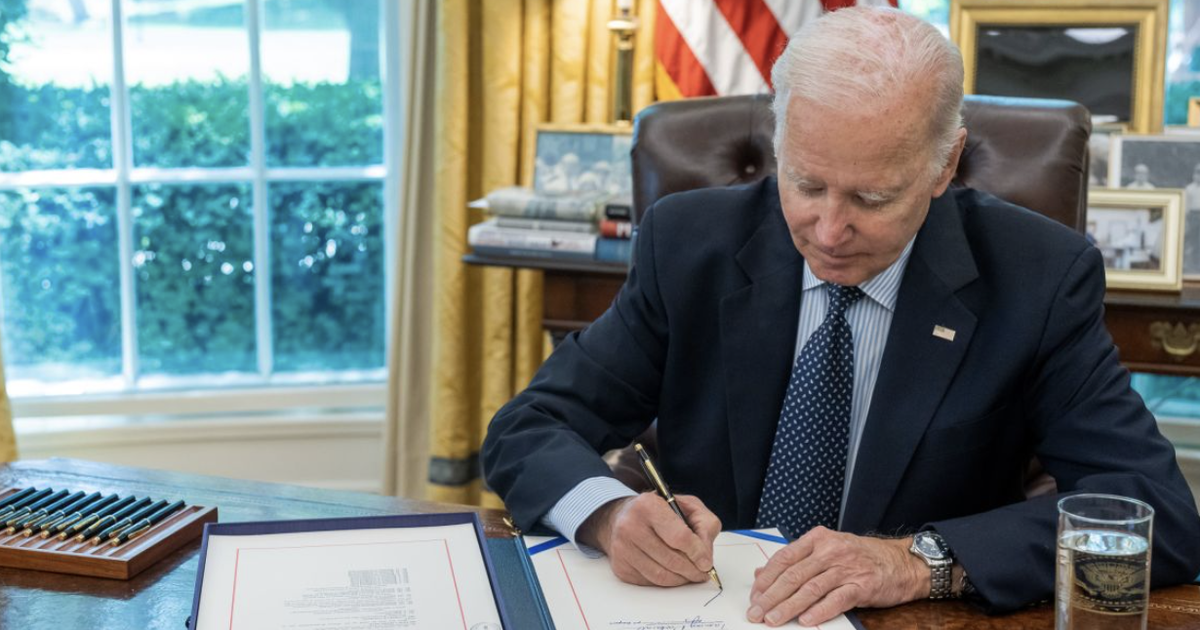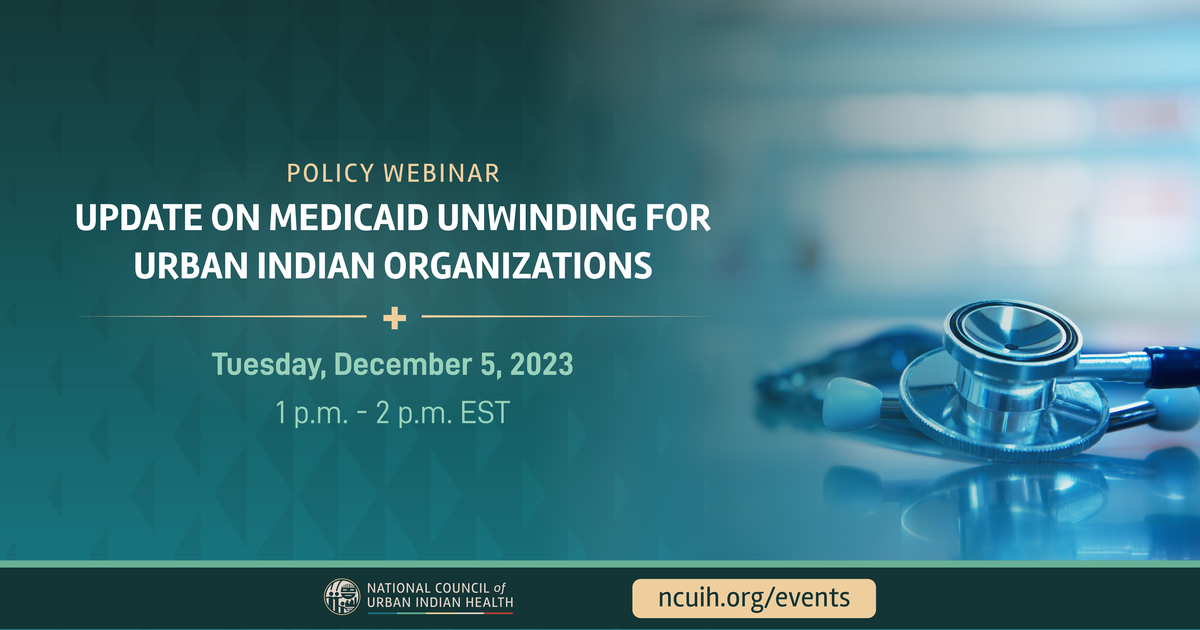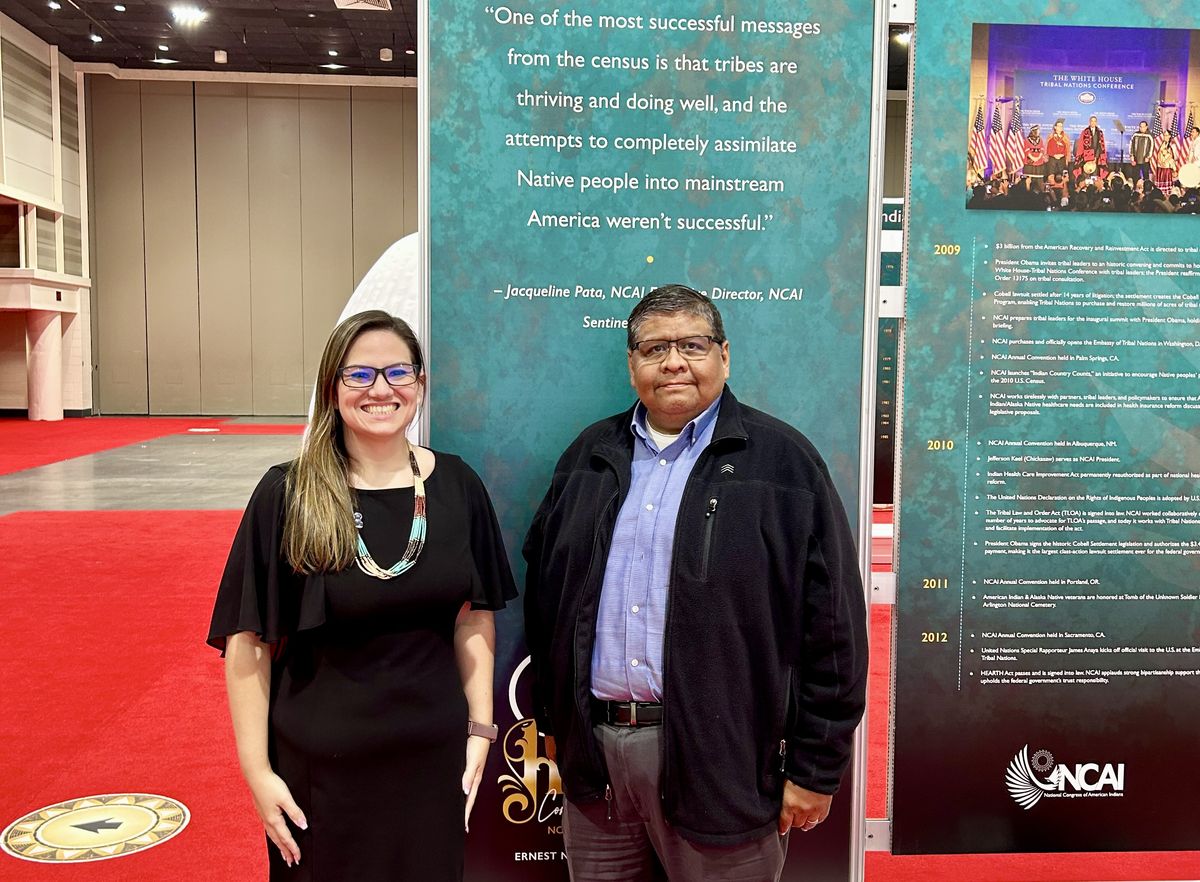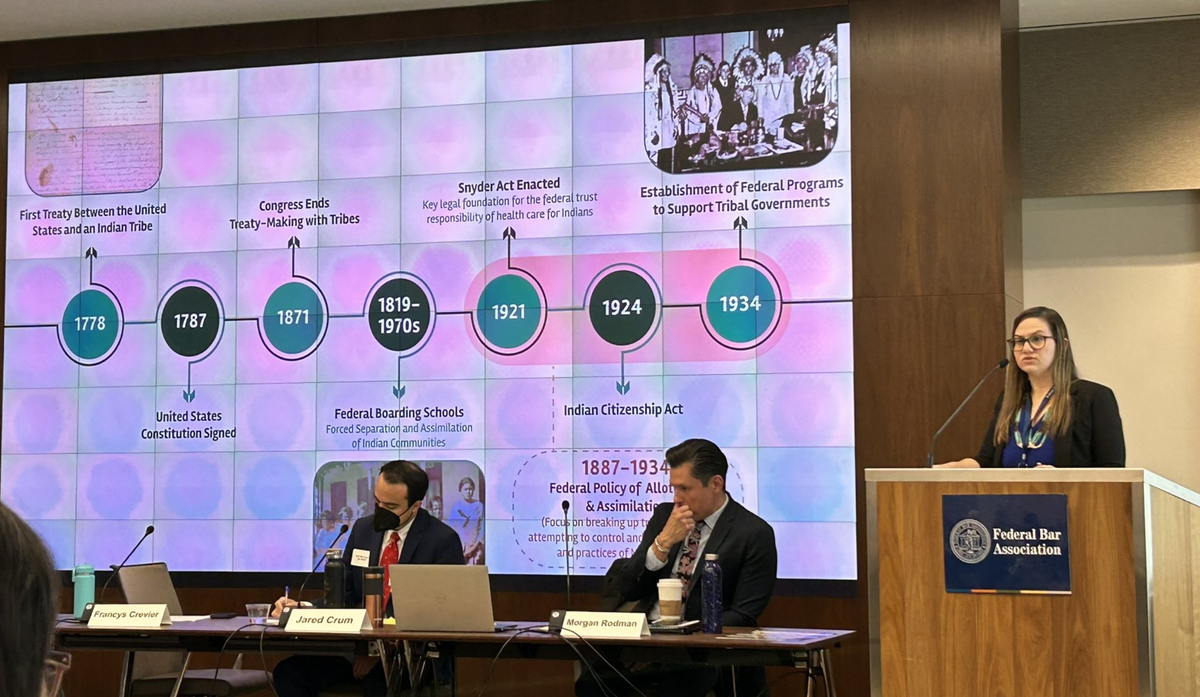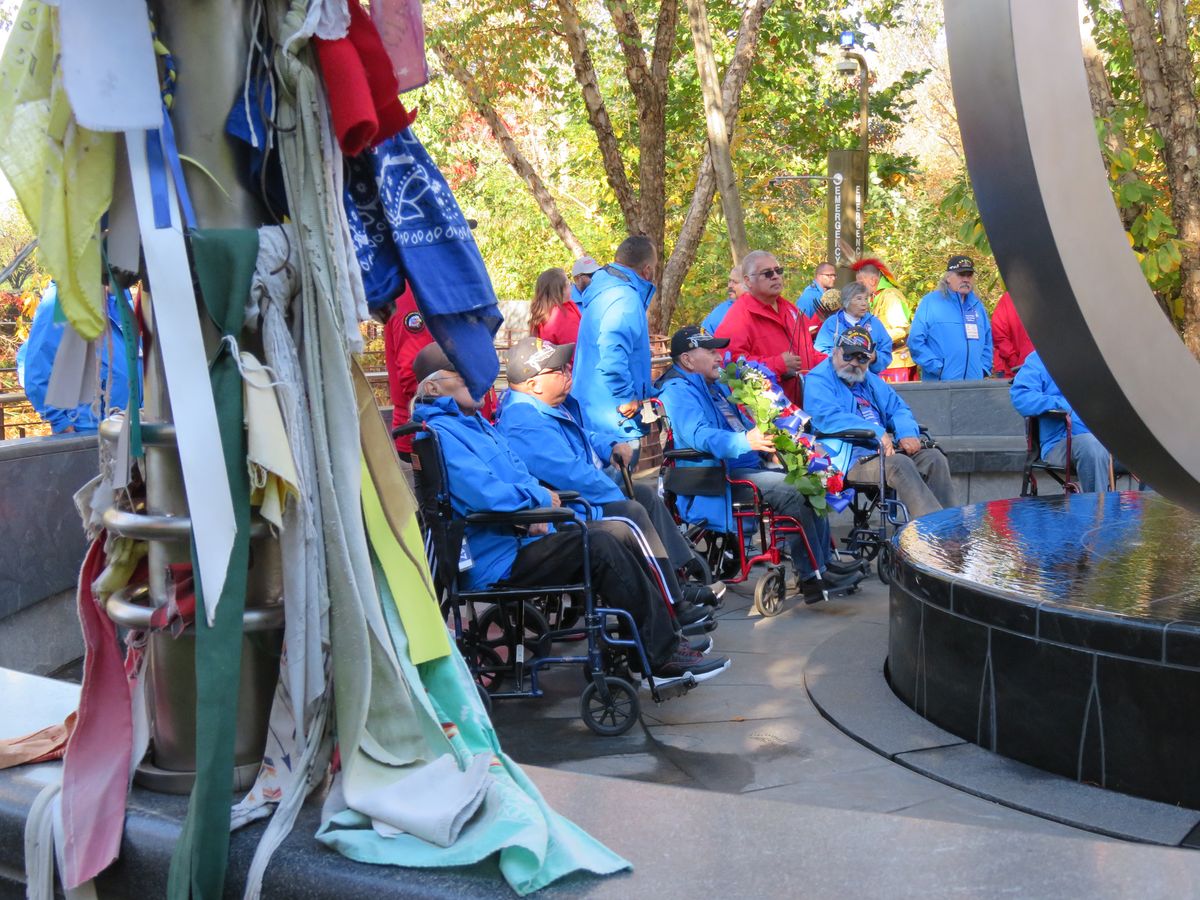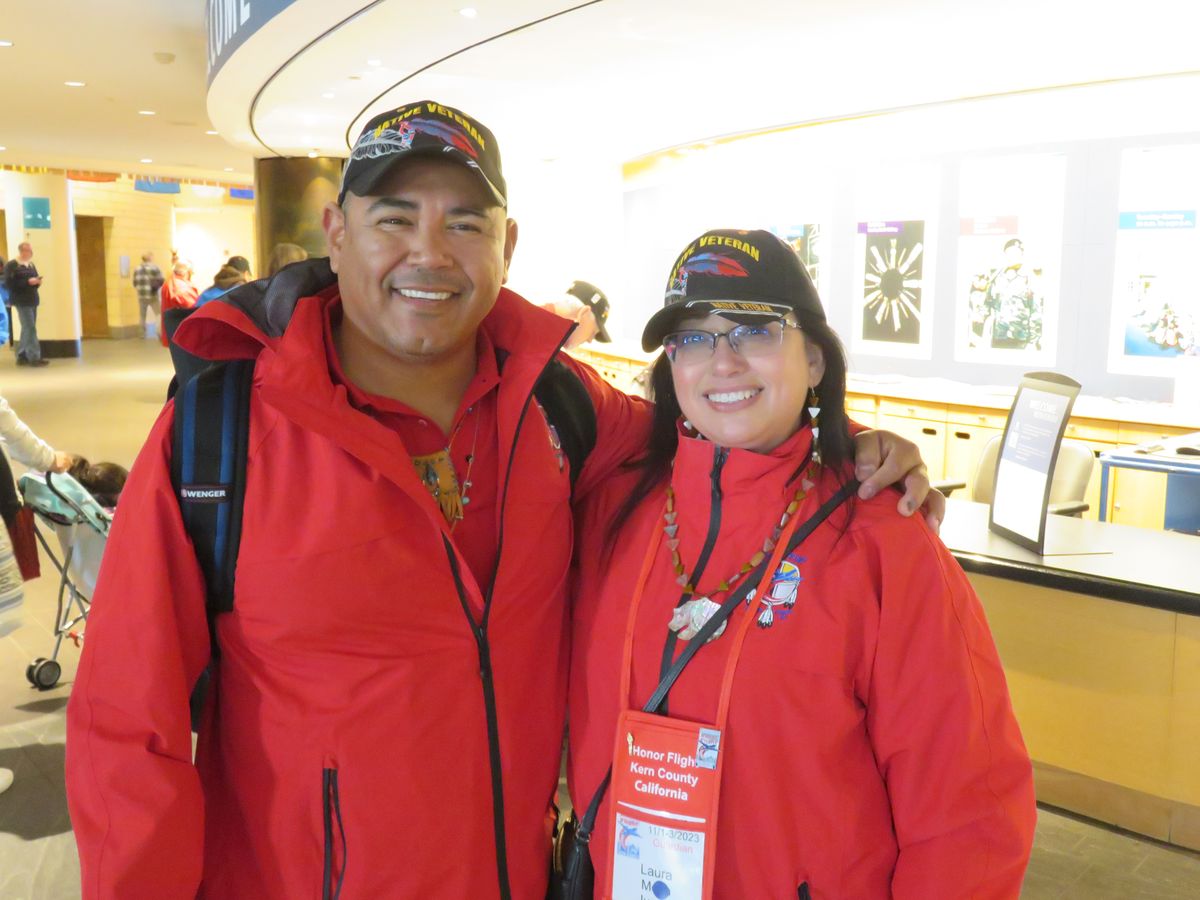December Policy Updates: White House Tribal Nations Summit Updates, 100% FMAP, and More
Happy New Year!
In This Edition: ….conference season is underway, and many more developments in urban Native health policy.
Have a safe and happy holiday season!
White House Tribal Nations Summit Updates
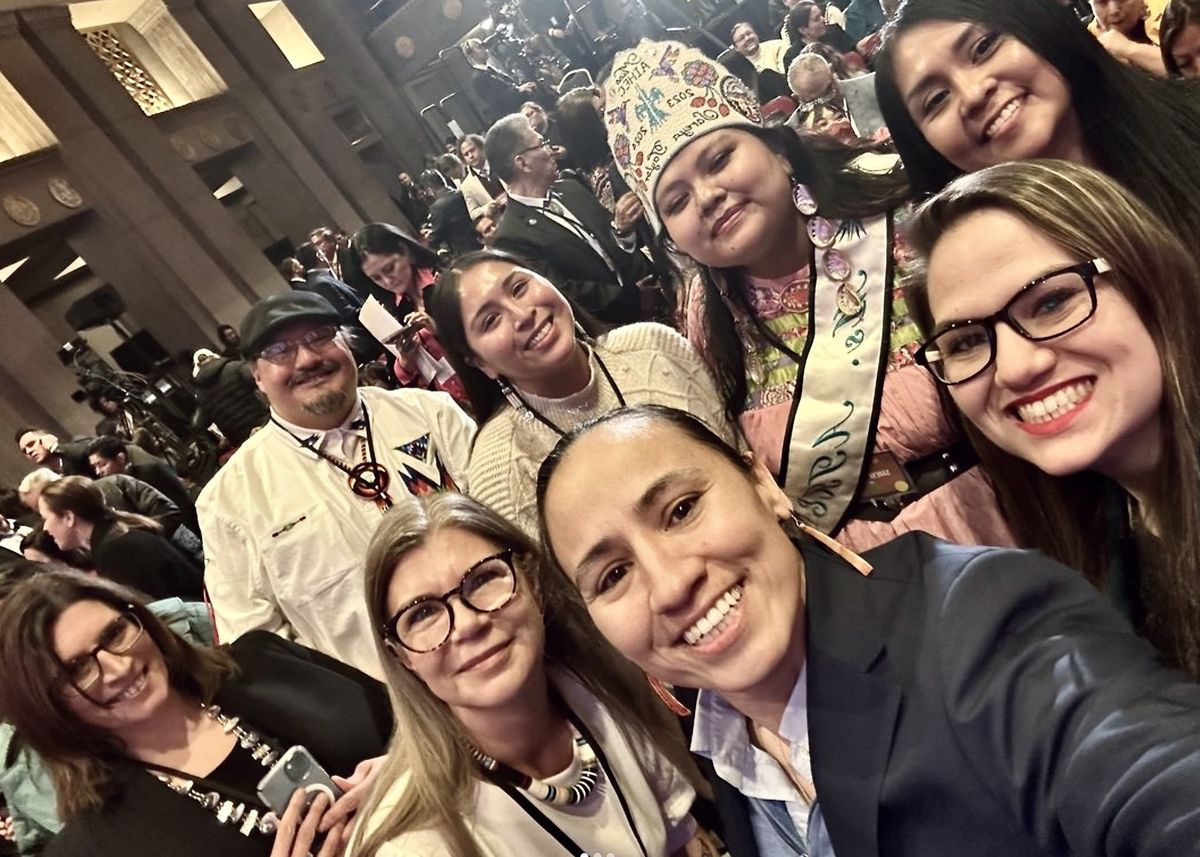
Rep. Sharice Davids (D-KS), joins NCUIH CEO Francys Crevier, JD (Algonquin), AIHEC’s VP of Congressional Relations Ahniwake Rose, and Tribal college students during the White House Tribal Nations Summit.
NCUIH CEO Francys Crevier had the opportunity to attend the 2023 White House Tribal Nations Summit on December 6 and 7 in Washington, D.C.
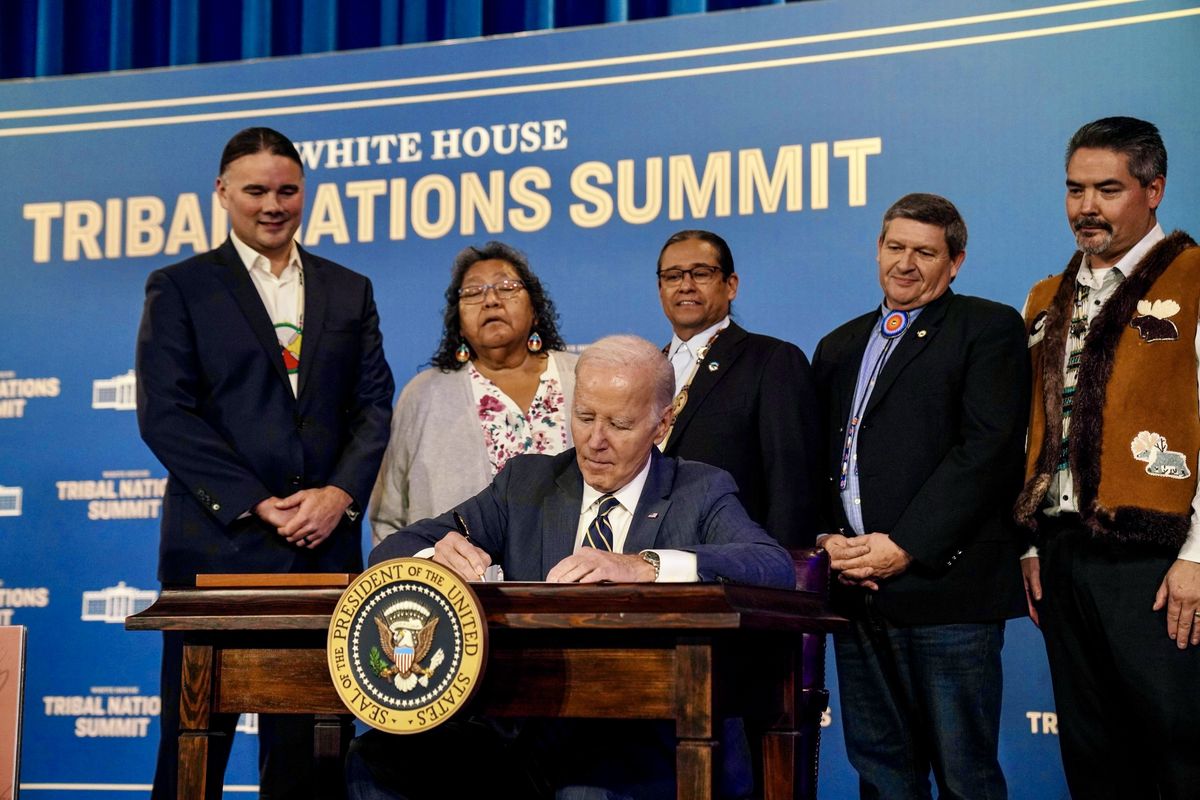
President Joseph Biden joins Tribal Leaders to sign Executive Order 14112.
President Biden Signs Executive Order on Reforming Federal Funding and Support for Tribal Nations to Better Embrace Our Trust Responsibilities and Promote the Next Era of Tribal Self-Determination (EO 14112) during the White House Tribal Nations Summit.
The Biden-Harris Administration also released a 2023 Progress Report for Tribal Nations, which outlines historic progress the Administration has made over the past year to address top Indian Country concerns.
-
Initiatives vital to urban Native communities were highlighted, including strategies for access to the Strategic National Stockpile in healthcare, HHS’s Comprehensive Missing and Murdered Indigenous People (MMIP) plan, Veteran’s Health exemptions, the Native American Veterans Homelessness Initiative, 988 Suicide Lifeline focus, Indian Health Service (IHS) Health Information Technology (HIT) Modernization, reproductive healthcare access at IHS, and SSA Native Language accessibility improvements.
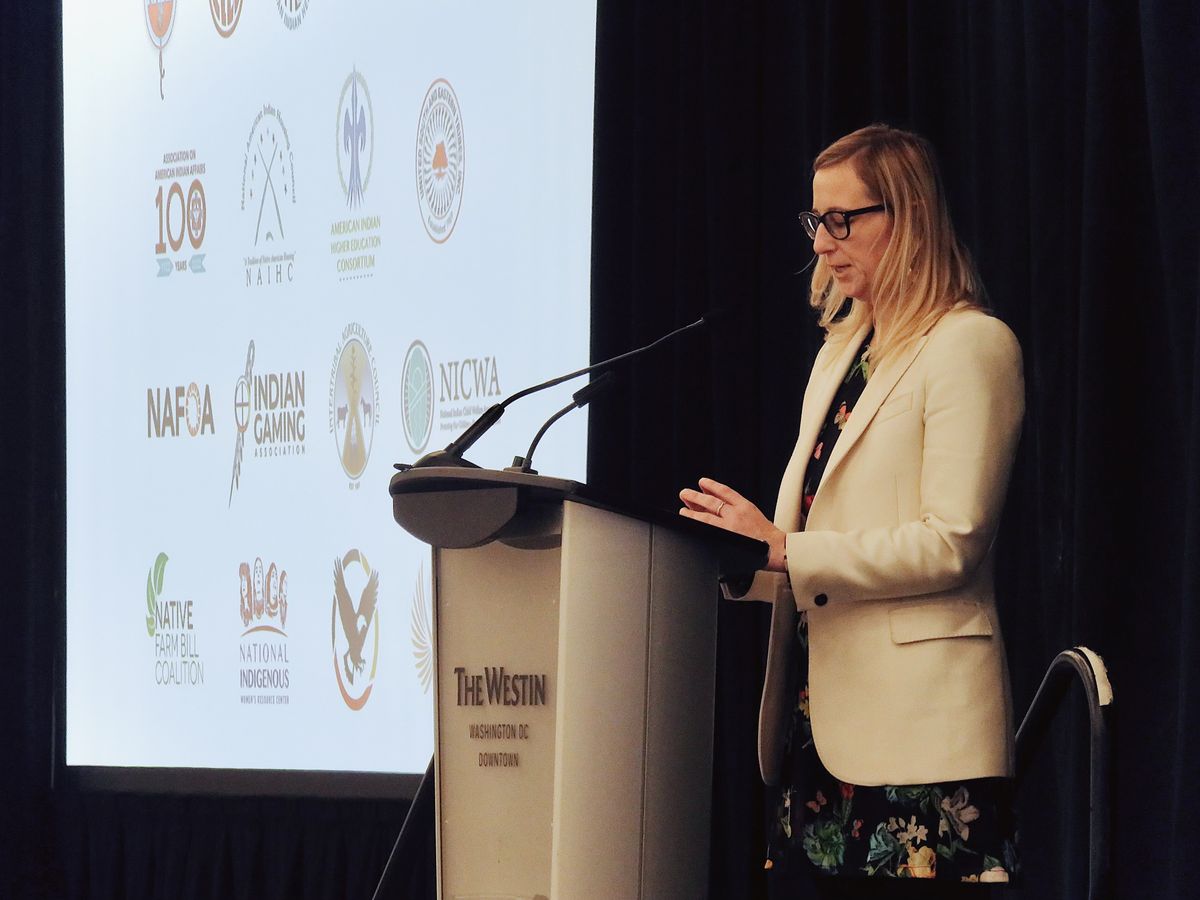
NCUIH’s Vice President Policy and Communications presented at the Tribal Leaders Briefing.
On December 5, NCUIH was honored to contribute as a presenter alongside many other Native organizations at the National Congress of American Indians (NCAI) Tribal Leaders Briefing ahead of the 2023 White House Tribal Nations Summit.
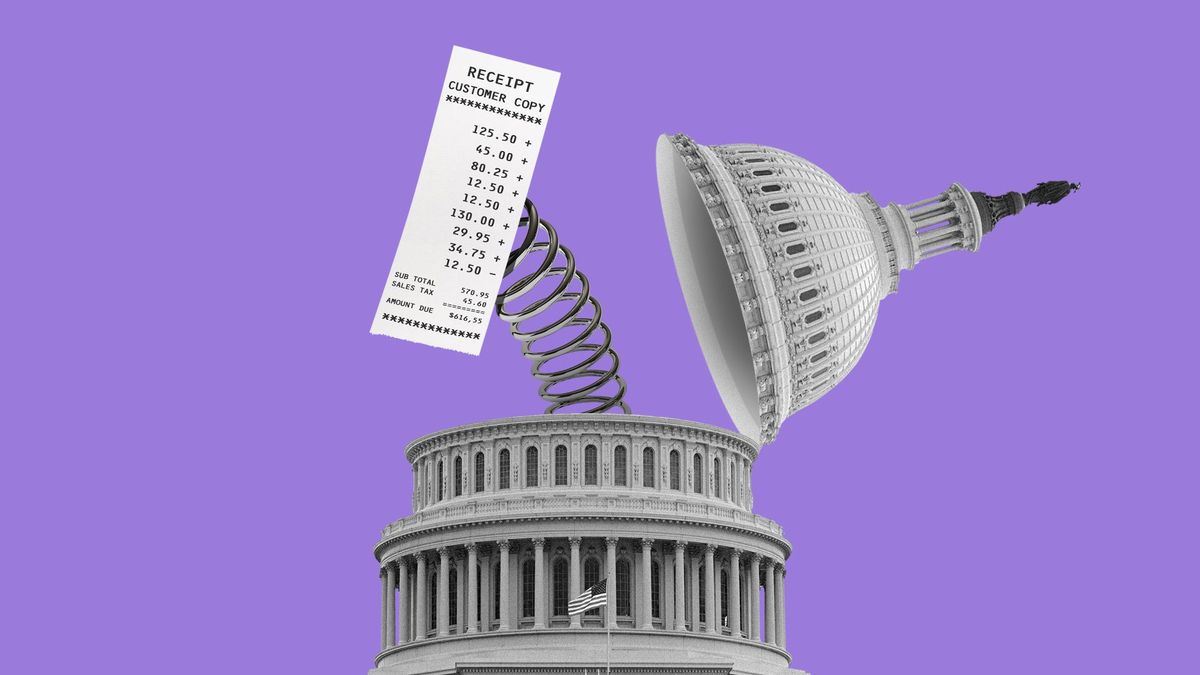
On November 15, 2023, a full government shutdown was averted when Congress passed a two-tiered Continuing Resolution (CR) serving as a stopgap spending measure. The CR was signed into law by President Biden on November 16, 2023.
What is included: The CR includes two funding deadlines for the twelve appropriations accounts, January 19 and February 2.
The bottom line: Last year, Congress authorized $5.13 billion in advanced appropriations for IHS, insulating the majority of IHS programs from the worst effects of a government shutdown.
Go deeper: The CR re-authorized the Special Diabetes Program for Indians (SDPI) until January 19th at $25.89 million, and funds IHS accounts not receiving advanced appropriations at FY23 levels through February 2nd.
Did you know?: President Biden requested $250 million for IHS in emergency supplemental funding in response to the current opioid epidemic. Congress has not included this funding in this CR.
Urban Indian Health Priority Updates: SDPI Reauthorization & 100% FMAP for UIOs
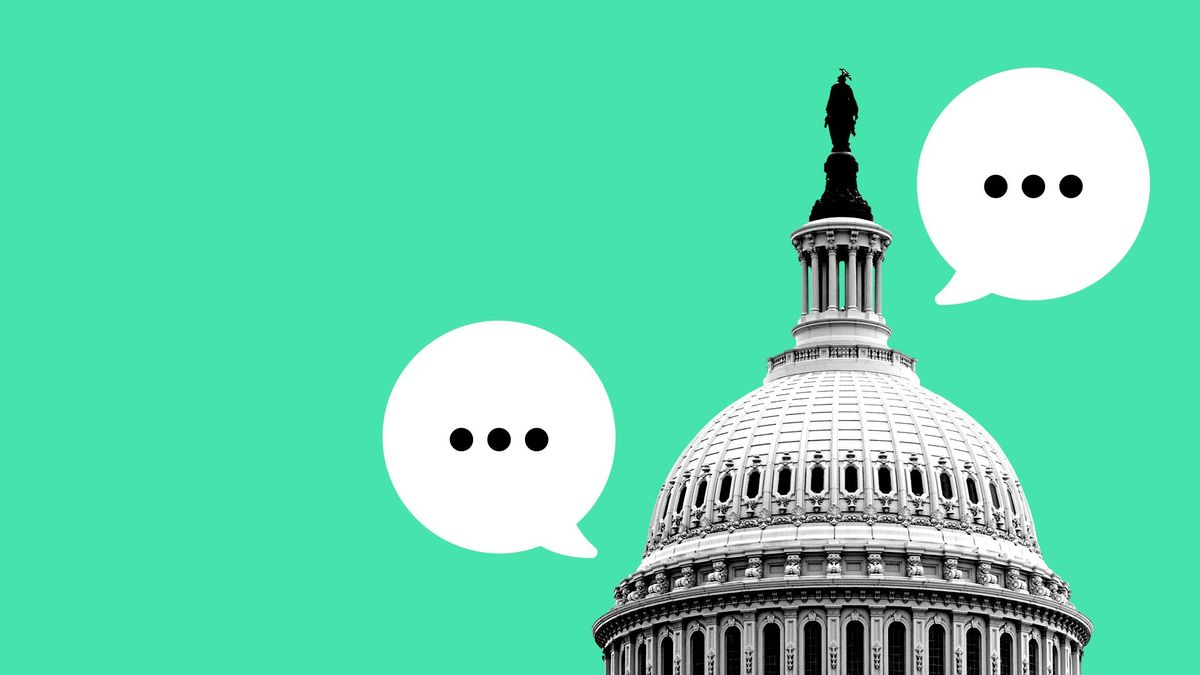
Special Diabetes Program for Indians (SDPI):
The Lower Cost, More Transparency Act of 2023 (H.R. 5378) includes language reauthorizing SDPI for FY2025 and raises funding to $170 million. The bill passed the House on Monday, December 11, 2023.
-
What’s next: The bill will now be considered by the Senate with a vote expected in the New Year.
-
Why it matters: The bill’s reauthorization of SDPI would allow for UIOs to continue to use grant funding to offer a wide range of diabetes treatment and prevention services, including but not limited to exercise programs and physical activity, nutrition services, community gardens, culinary education, physical education, health and wellness fairs, culturally relevant nutrition assistance, food sovereignty education, group exercise activities, green spaces, and youth and elder-focused activities. The FY2024 Continuing Resolution (CR) re-authorized SDPI at $25.89 million and is set to expire on January 19, 2024, making this legislation even more crucial to avoid lapses in critical diabetes research and care funding.
100% Federal Medical Assistance Percentage (FMAP) for UIOs:
On Nov. 30, Representative Bacon (R-NE-2) and Representative Ruiz (D-CA-25) reintroduced the bipartisan Urban Indian Health Parity Act (H.R. 6553) which would amend the Social Security Act to set the FMAP at 100% for services provided to Medicaid beneficiaries at UIOs.
“We applaud Representatives Ruiz and Bacon for this bipartisan effort to ensure that the federal government honors its trust responsibility to Native people and improves health outcomes that are desperately needed. With broad support from Indian Country, we are hopeful that Congress will move forward with ending this inequity to expand resources for communities that benefit from the necessary services provided by urban Indian organizations and all Indian Health Care Providers,” said Francys Crevier, CEO of NCUIH.
-
What’s next: NCUIH is currently working to secure more cosponsors for the bill.
American Medical Association Adopts NCUIH-Supported Resolution on IHS Improvements, Includes 100% FMAP for UIOs:
-
On November 3, 2023, NCUIH submitted written testimony to the 2023 Interim Meeting of the American Medical Association (AMA) House of Delegates, held on November 10-14, 2023, regarding the proposed resolution “Federal Medical Assistance Percentage Extension for Urban Indian Organizations” as part of a larger resolution, Resolution 812 (I-23), “Indian Health Service Improvements.”
-
What they’re saying: The Reference Committee noted that 100% FMAP would “lead to enhanced and directed advocacy of priorities as identified by American Indian/Alaska Native-serving health organizations and other important stakeholders.”
-
The bottom line: The AMA adopted the entire resolution, including the language in support of 100% FMAP for UIOs.
“RESOLVED, that our American Medical Association supports an increase to the Federal Medical Assistance Percentage (FMAP) to 100% for medical services which are received at or through an Urban Indian Organization that has a grant or contract with the Indian Health Service (IHS) and encourage state and federal governments to reinvest Medicaid savings from 100% FMAP into tribally-driven health improvement programs.”
-
Why it matters: Adoption of this resolution means that 100% FMAP will now be a priority of the AMA moving forward. Having the support of the largest physician advocacy organization is an additional advocacy tool NCUIH and other organizations can utilize, and it shows Congress the necessity of passing 100% FMAP legislation.

Our thought bubble: NCUIH recently released an infographic on the importance of setting the FMAP at 100% for services provided to Medicaid beneficiaries at urban Indian organizations.
NCUIH Releases Report on Recent Trends in Third-Party Billing at UIOs
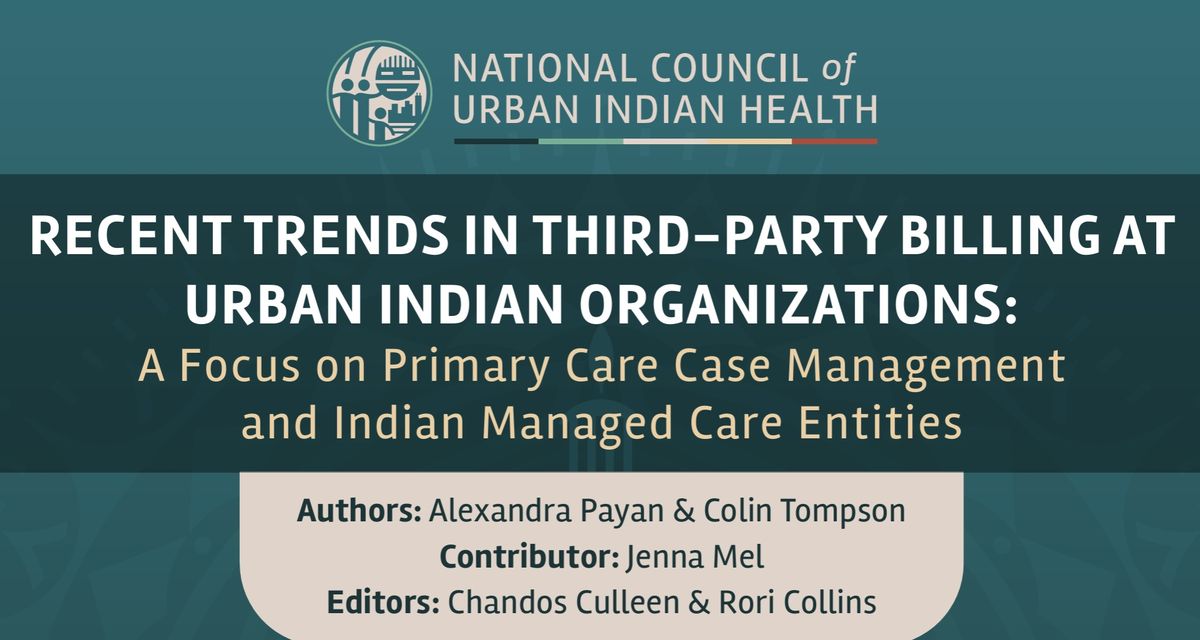
On November 29, 2023, NCUIH published its report on the experience of UIOs enrolled in Medicaid and the Children’s Health Insurance Program as a primary care case manager (PCCM) or Indian Managed Care Entity (IMCE).
Go deeper:
-
Overall UIOs reported a positive experience when operating as a PCCM and felt that it improved patient care.
-
The sole UIO operating as an IMCE (providing PCCM services) also felt that it improved patient care.
What else?:
-
This is one of two reports funded by NORC at the University of Chicago focusing on third-party billing that NCUIH released this year.
-
Our second report concerning Traditional Healing will be published early in 2024.
NCUIH Requests Updates on IHS Health IT Modernization & AI/AN Engagement in HHS Healthy People Initiative

On November 20, NCUIH submitted comments to the Department of Health and Human Services (HHS) Office of Disease Prevention and Health Promotion (ODPHP) regarding Healthy People (HP) Objectives.
-
The bottom line: NCUIH recommended that the agency conduct Tribal Consultation and Urban Confer when developing new objectives, ensure ODPHP is engaging with the HHS Secretary’s Tribal Advisory Committee on HP 2030 additional Objectives, and ensure that an IHS representative is on each of the objective workgroups.
On December 8, NCUIH submitted comments to IHS regarding HIT Modernization: The Path Forward.
-
The bottom line: NCUIH requested that the agency clarify the HIT Modernization implementation process, provide an update to the timeline for HIT Modernization implementation, provide frequent and regular updates to the IHS HIT Modernization webpage, and communicate the status of the Enterprise Collaboration Group.
Upcoming Events and Important Dates

Upcoming Events & Important Dates:
-
January 9, 11 & 17, 2024 – IHS Tribal Consultation – Updating the IHS Tribal Consultation Policy on the definition of “Indian Tribe.”
-
January 16-18, 2024 – U.S. Patent and Trademark Office, Department of Commerce Tribal Consultation: Genetic Resources, Traditional Knowledge, and Traditional Cultural Expressions.
-
January 18, 2024 - Urban Program Executive Directors/Chief Executive Officers Monthly Conference Call.
Upcoming Federal Agency Comments:
-
January 18 – HHS Office of Civil Rights (OCR) – Proposed Rule on HHS Grants Regulation:
– Provisions in the HHS grant regulations that would require grant recipients to comply with applicable federal statutory nondiscrimination provisions, require HHS compliance with applicable Supreme Court decisions in administering grants, and provide a religious exemption from certain provisions.
-
January 23 – Department of Veterans Affairs (VA)/IHS – Revised Reimbursement Agreement Program:
– VA and IHS have executed a revised agreement to facilitate reimbursement by VA to IHS for health care and related services provided by the IHS to eligible AI/AN Veterans.
-
February 2 – Centers for Medicare and Medicaid Services (CMS) – Enforcement of State Compliance with Reporting and Federal Medicaid Renewal:
– This interim final rule implements reporting requirements and enforcement authorities in the Social Security Act that were added by the Consolidated Appropriations Act, 2023.
– New enforcement authorities include requiring States to submit a corrective action plan, suspending disenrollments from Medicaid for procedural reasons, imposing civil money penalties (CMPs), & applying a reduction to the State-specific FMAP for failure to meet reporting requirements.
ICYMI:
-
On December 5-6, NCUIH attended the Tribal Leaders Diabetes Committee (TLDC) meeting in Portland, Oregon as a technical advisor.
– Much of the discussion was around SDPI and the current CR reauthorizing SDPI through January 19, 2024. Full SDPI reauthorization is still pending.
– The Native American Rehabilitation Association of the Northwest, Inc. presented on their UIO’s diabetes programing including their Saturday Diabetes Clinic which has been a resounding success in providing care for diabetic patients.
-
On December 13, IHS held their HIT Modernization Summit where NCUIH’s Director of Technical Assistance, Dr. Kimberly Fowler, led the UIO caucus and UIO leaders were able to openly share questions, concerns, and comments regarding the HIT modernization process and the selection of the new Electronic Health Record (EHR). These questions were then asked during the Discussion and Q&A portion of the virtual summit.
– During the summit, IHS announced that they are updating their HIT Modernization website to provide more up to date information and access to event information regarding the modernization process.
-
On December 13-14, IHS Tribal Self-Governance Advisory Committee (TSGAC) held their meeting in Washington, DC.
– Jillian Curtis, Director, Office of Finance and Accounting, shared that FY 2024 sequestration is possible, and the Fiscal Responsibility Act (FRA) would trigger an automatic 1% discretionary sequester if the government is still operating under a partial year continuing resolution past April 30. Congress could override the sequester or use other scorekeeping methods to avoid sequester. Congress also has flexibility to turn off sequester for certain activities in subsequent legislation. Under the FRA, the default application of the sequester would be across the board. It is not yet clear whether the sequester would apply to advance appropriations.
Recent Dear Tribal Leader Letters (DULLs) and Dear UIO Leader Letters (DULLs)
-
-The comment submission deadline for this Tribal Consultation will be February 20, 2024.
-
– Beginning on December 15, 2023, interested applicants will be able to apply online at www.ihs.gov/scholarship/apply.
-
– The goal is to support and facilitate responsible data storage, data sharing, and data access for researchers and their collaborators who are generating or are interested in working with RADx data provided by American Indian and Alaska Native research participants, including data for COVID-19 and other health topics collected under RADx projects
-
– This agreement replaces and expands upon the prior agreement which was originally executed on December 15, 2012.
– Under this agreement, VA will now reimburse IHS for Purchased/Referred Care (PRC) and contracted travel for AI/AN veterans.
– The comment submission deadline is January 23, 2024.
-
– The FNCP contract will provide for Sexual Assault Nurse Examiner/Sexual Assault Examiner/Forensic Nurse Examiner (SANE/SAE/FNE) training, education, and technical assistance for I/T/U health care providers.
– The contract will also support continuing education and mentorship opportunities, enhancing forensic health care efforts across Indian Country.
NCUIH in Action: DOI Holiday Celebration, IHS Award Ceremony
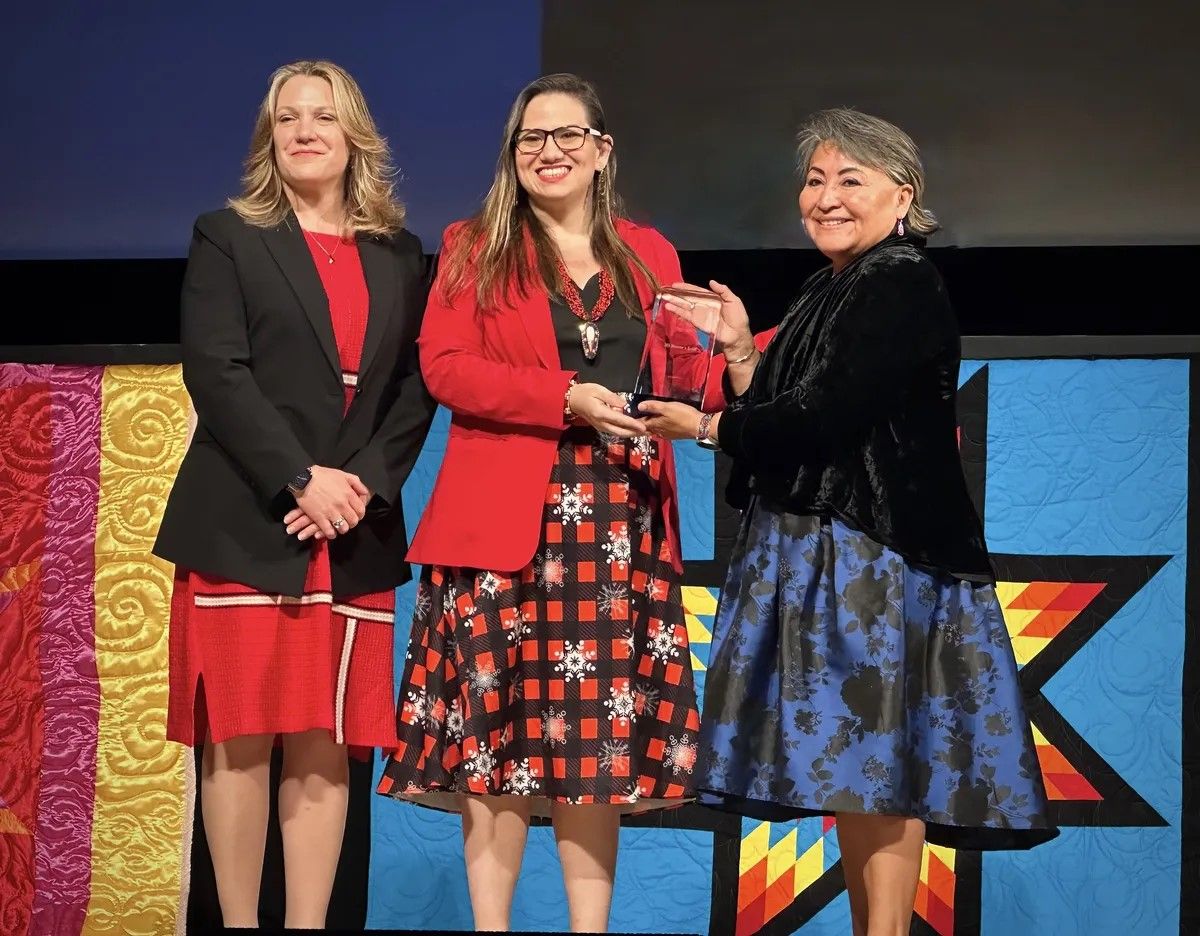
Pictured L to R: Andrea Palm, Deputy Secretary of the Department of Health and Human Services (HHS), Francys Crevier, NCUIH CEO, and Roselyn Tso, Director of the Indian Health Service.
On December 8, NCUIH CEO, Francys Crevier was awarded the IHS Director’s Special Recognition Award: Urban Leadership Award by IHS Director, Roslyn Tso and Department Secretary of HHS, Andrea Palm.
“I am grateful for the 2022 Director’s Special Recognition Award, which recognizes the tireless efforts of the National Council of Urban Indian Health in advocating for the health and rights of Indigenous communities. This award is not just a personal achievement but a symbol of the collective impact we can make when we work together. Our Urban Indian Organizations, Tribes, and Tribal organization partners have been integral to our movement. I share this honor with our partners, our dedicated team, and the entire Native community living in urban areas as we continue our mission to foster positive change and ensure equitable access to health care.” – NCUIH CEO Francys Crevier (Algonquin)
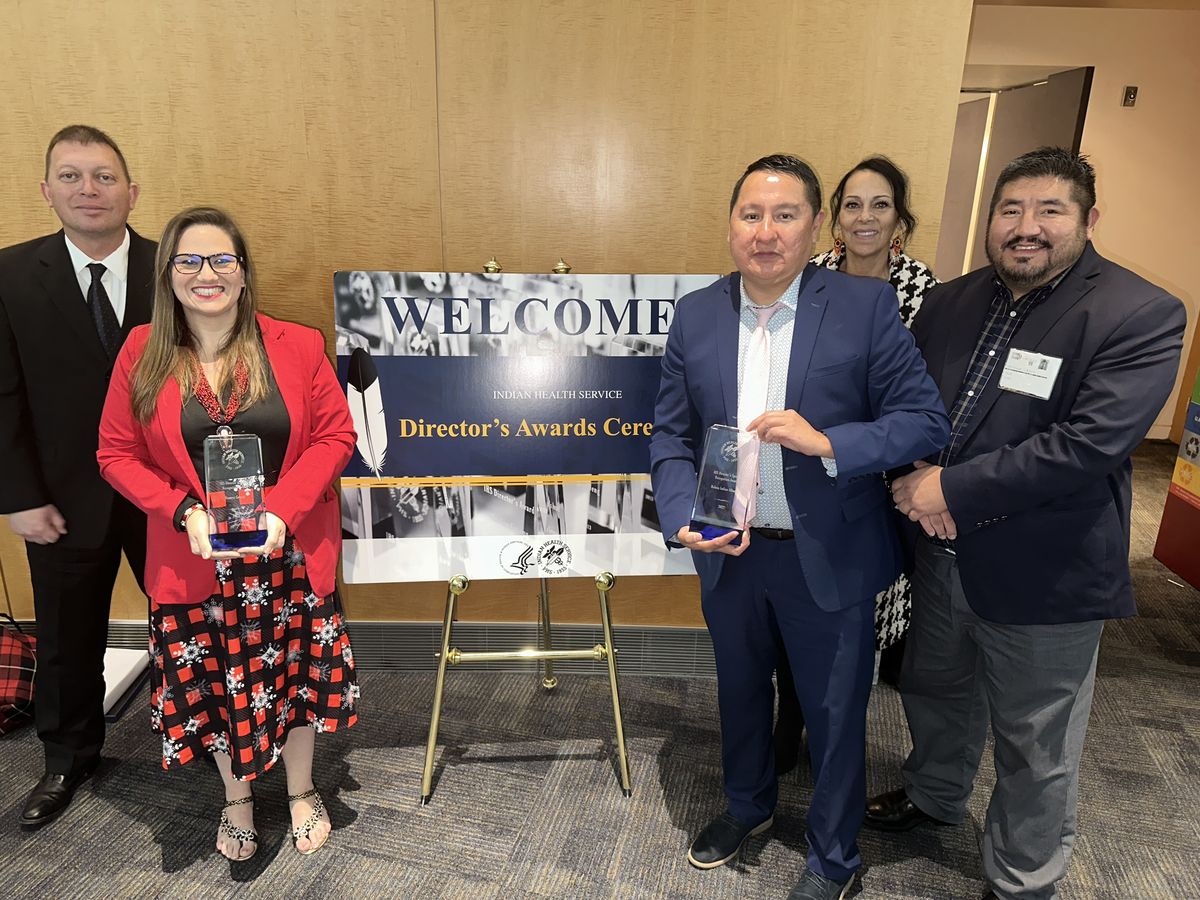
Pictured: Mike Touchette, Helena Indian Alliance (HIA) board chair, Francys Crevier, NCUIH CEO, Todd Wilson, HIA executive director, Renee Parsley, HIA board vice chair, and Jason Smith, HIA board treasurer.
Alongside Francys Crevier, Todd Wilson (Crow), a NCUIH board member and Executive Director of the Helena Indian Alliance in Montana, accepted an Urban Leadership Award on behalf of the Helena Indian Alliance for its outstanding contributions to urban leadership. Mr. Wilson has played a pivotal role in advocating for the rights and well-being of Indigenous communities, demonstrating exceptional dedication to improving health care in Indian Country. His leadership at the Helena Indian Alliance showcases a commitment to improving health care for urban Native populations. Kevin Sandoval, HIM/IT coordinator at the Helena Indian Alliance, won an IHS Director’s Special Recognition Award.
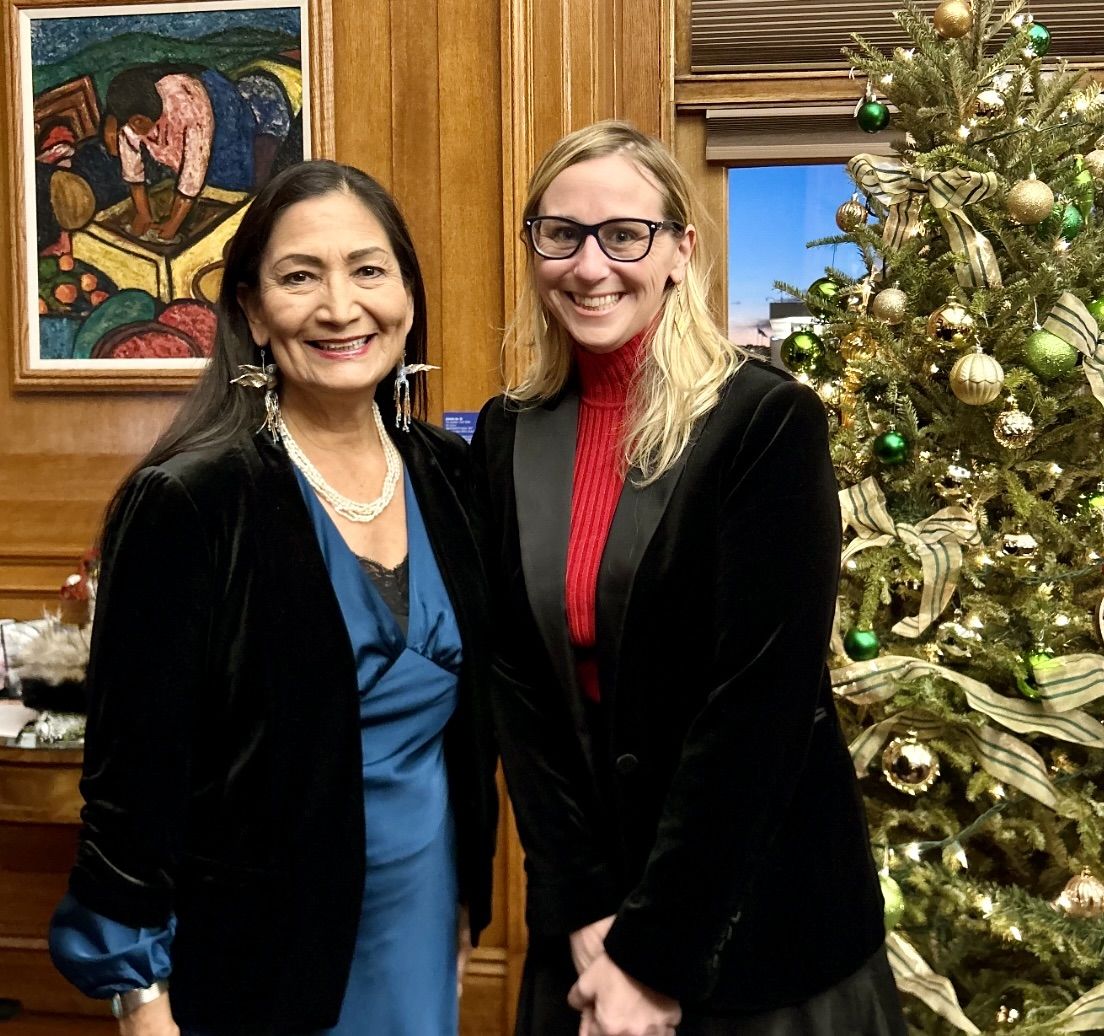
United States Secretary of the Interior, Deb Haaland (Pueblo of Laguna) and Meredith Raimondi, Vice-President of Policy and Communications, NCUIH.
On December 12, NCUIH represented UIOs at the Department of Interior Holiday Celebration with Sec. Deb Haaland.
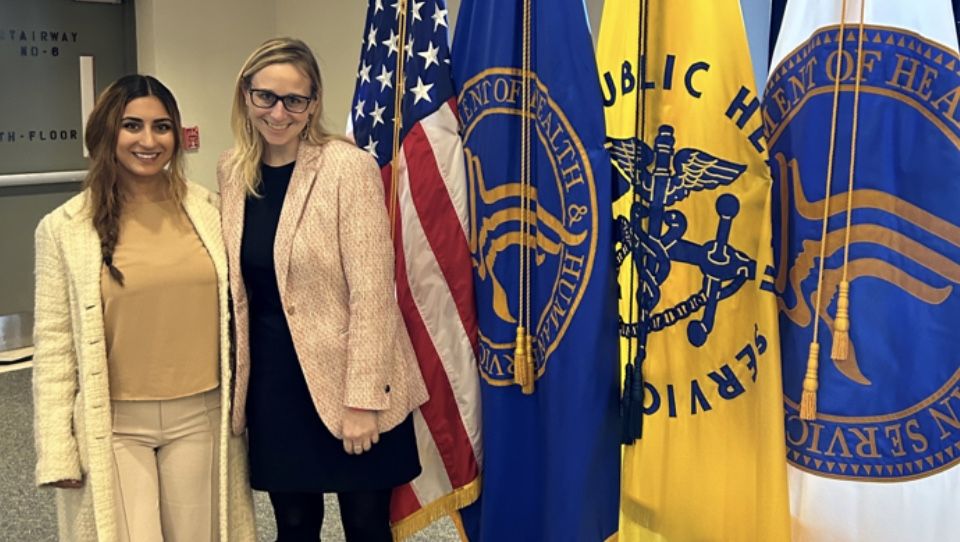
On November 28-29, NCUIH staff represented UIOs at the HHS Secretary’s Technical Advisory Committee (STAC) meeting in Washington, D.C. Dan Tsai, Director for Medicaid and CHIP at CMS, gave updates on the Medicaid unwinding, four walls, and 1115(a) demonstrations:
-
1115(a) Demonstration Wavier: AZ has not approved the waiver, but several states have come forward to advocate for this. CMS reiterated that the agency understands the importance of AZ’s waiver.
-
Four Walls: Extended implementation of the policy to February 2025 to work through legal challenges. CMS is taking a look at Medicaid clinic payment system and looking at chronically homeless individuals.
NCUIH 2024 Urban Indian Health Policy Preview

Join us for an informative session as the NCUIH Policy Department explores 2024 Policy Priorities for American Indians and Alaska Natives. This engaging webinar promises a thorough exploration of key issues leading the charge in advocacy efforts, shaping the policy landscape for Native communities in the coming year.
Event Goal:
The goal is to share with participants a comprehensive understanding of the key issues shaping advocacy efforts and influencing the policy landscape for American Indians and Alaska Natives.
Objectives:
-
Develop a deeper understanding of the 2024 Policy Priorities driving American Indian/Alaska Native health initiatives
-
Gain valuable insights into the advocacy efforts aimed at advancing urban Indian health policies.
2024 NCUIH Annual Conference – Call for Proposals

We are accepting proposals from all American Indian and Alaska Native-serving organizations, with a priority for UIOs to present their capacity-building best practices, successes, and innovations at our 2024 annual conference, Sustaining Traditions: Culture, Identity, and Health, April 30 – May 1, 2024, at the Hilton Capitol Hill in Washington, D.C.
All presentation proposals and poster session submissions are due January 19, 2024. Selected break-out session presenters will receive a reduced registration to attend the conference. To learn more and submit a proposal, please view the form.
Other conference updates include sponsorships and room reservations.
Sponsorships: Several different sponsorship levels remain. If you are interested in sponsoring the conference, please see our sponsor guide or contact Tyler Dougherty.
Room Reservations: The negotiated room rate of $369 per night (plus tax) for single/double occupancy rooms is available until April 5, 2024. We encourage you to book your room soon to secure this special rate. To make your reservation at the Hilton Washington DC Capitol Hill, click here to access the room block.
Should you have any questions or require additional information, please do not hesitate to contact NCUIH conference organizers at conference@ncuih.org.
One last thing, check out these upcoming funding opportunities:
-
Health Resources & Services Administration (HRSA) – Maternal and Child Health Improving Oral Health Integration Demonstration Projects
– Deadline: January 22, 2024 (Apply)
-
IHS – Community Opioid Intervention Prevention Program
-Deadline: February 7, 2024 (Apply)
-
U.S. Department of Justice Office on Violence Against Women (OVW) – OVW Fiscal Year 2024 Legal Assistance for Victims Grant Program
– Deadline: February 13, 2024 (Apply)
-
Youth Homelessness System Improvement (Department of Housing and Urban Development)
– Deadline: February 15, 2024 (Apply)
-
Substance Abuse and Mental Health Services Administration (SAMHSA) – Strategic Prevention Framework Partnerships for Success for Communities, Local Governments, Universities, Colleges, and Tribes/Tribal Organizations
– Deadline: February 21, 2024 (Apply)
-
National Institute of Food and Agriculture, U.S. Department of Agriculture – The Gus Schumacher Nutrition Incentive Program – Produce Prescription Program
– Deadline: February 28, 2024 (Apply)
-
IHS – Indian Health Service Scholarship Program (IHSSP)
-Deadline: February 28, 2024 (Apply)
-
AmeriCorps – Forest Corps Recruiting Native Youth for Opportunities to Support Cultural Resource Management Projects
– Deadline: February 29, 2024 (Apply)




